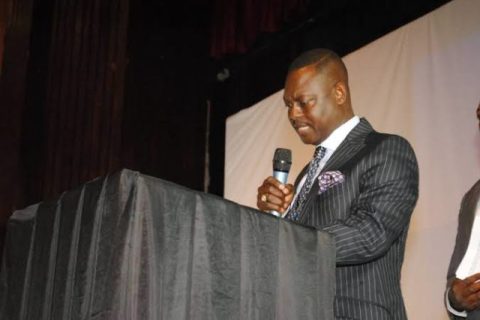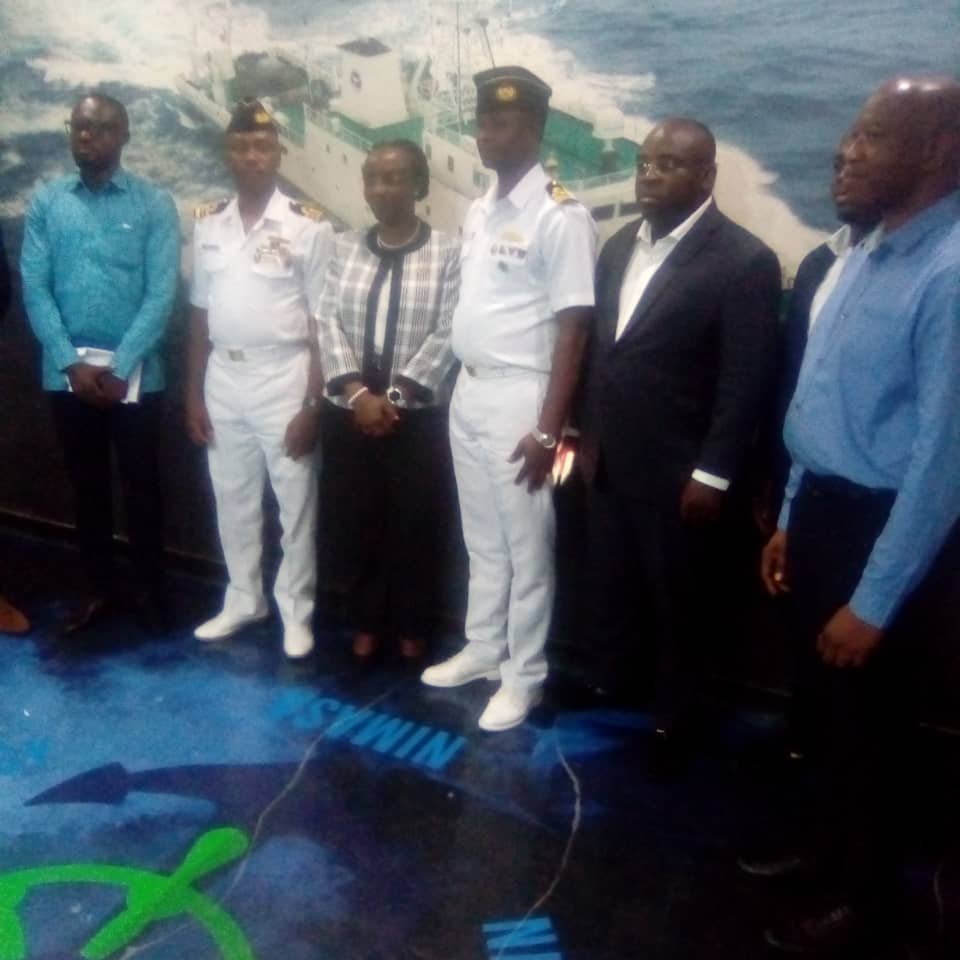 SIFAX Group Executive Vice Chairman, Dr. Taiwo Afolabi has said that there was an urgent need for all Nigeria’s seaports to be connected to the standard gauge rail lines in order to enhance the efficiency of the ports as part of efforts to ensure the sustainable growth of the maritime industry.
SIFAX Group Executive Vice Chairman, Dr. Taiwo Afolabi has said that there was an urgent need for all Nigeria’s seaports to be connected to the standard gauge rail lines in order to enhance the efficiency of the ports as part of efforts to ensure the sustainable growth of the maritime industry.
Speaking at the 4th edition of the Taiwo Afolabi Annual Maritime Conference organised by the Law Association of the University of Lagos in conjunction with the SIFAX Group with the theme: Innovations and Practical Reforms Towards Sustainable Growth of the Maritime Sector”, held in Lagos on Friday, He also made a strong case for improved maritime security to curtail increasing instances of piracy and attacks on vessels and terminals. He Said, the Port reform and concession programme embarked upon by the Federal Government in 2006 remains a huge success as it has helped to improve the turnaround time of vessels that call at the nation’s various seaports, reduced cargo dwell time, safety and security of cargo at the terminals, among several other benefits.
Dr Afolabi, however, noted that the seaports are just one aspect of the maritime industry, insisting that for the maritime industry to experience exponential growth, there must be sustainable policies that would drive the industry.
Commending the efforts of the various regulatory agencies of the government including the Nigerian Maritime Administration and Safety Agency NIMASA, Nigerian Ports Authority NPA and the Nigerian Shippers Council NSC for the policy of linking some of the seaports to national rail network such that goods cargo can be evacuated by rail to hinterlands, he made a strong case for all the ports to be connected to the standard gauge rail lines.
He said: “I am an advocate of innovative reforms and policies, this is because the SIFAX Group, which I head is a beneficiary of reforms in Nigeria’s maritime industry. Let me, therefore, seize the opportunity of today’s gathering to affirm that despite its challenges, Nigeria’s port reform policy, which brought the private sector into port operations, is indeed a huge success.
“The success of the port reforms, which were introduced in 2006, can be appreciated from the shorter turnaround of vessels at berth, shorter cargo dwells time, improved safety and security of cargo at the berths and at the terminals as well as less human interface and contact. Before the reforms, it took terminals weeks to locate containers, this led to delays and congestion and resultant payment of demurrage.
“No doubt, there has been a progressive increase in cargo throughput since 2006 and with this comes higher revenue into government’s coffers and so from the reasons highlighted above, it is clear that the port reform policy was a huge success.
“However, the ports alone do not represent the maritime industry, for the industry to witness exponential growth; its drivers must aim at the sustainability of the policies that will drive the industry.
“From the perspective of a port operator, I wish to submit that the rail modernisation policy of the Federal Government, which is aimed at effective use of rail to move cargo from the ports to the Inland Dry Ports and Container Freight Station, is a good development and must be seen to the end. All Nigeria’s seaports must be linked to the standard gauge. This is what can enhance the expected growth in Nigeria’s maritime industry.
“Also, for the maritime industry to grow, strict security measures must be put in place both onshore and offshore”
Dr Hassan Bello, Executive Secretary Nigeria Shippers Council who spoke at the event noted that there was a need for better traffic management in all the nation’s port cities to check gridlocks on the access roads as well as the consolidation of the existing freight forwarding firms to form bigger fleet managers.
Attendance at the event including Managing Director of NPA, Hadiza Bala Usman, Chairman of Ports Consultative Council, Otunba Kunle Folarin, Executive Vice Chairman of ENL Consortium, Princess Vicky Haastrup and Director General of NIMASA, Dr Dakuku Peterside, among other several dignitaries
 The New Experience Newspapers Online News Indepth, Analysis and More
The New Experience Newspapers Online News Indepth, Analysis and More
